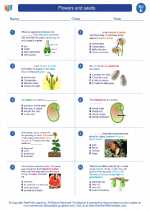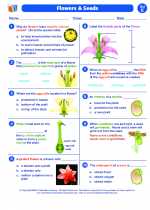Thyroid Gland
The thyroid gland is a small, butterfly-shaped gland located in the front of the neck, just below the Adam's apple. It is part of the endocrine system and plays a crucial role in regulating metabolism, growth, and development of the human body.
Anatomy of the Thyroid Gland
The thyroid gland consists of two lobes, one on each side of the windpipe, connected by a narrow band of tissue called the isthmus. It is made up of millions of tiny follicles that produce, store, and release hormones into the bloodstream.
Function of the Thyroid Gland
The thyroid gland produces two main hormones: thyroxine (T4) and triiodothyronine (T3). These hormones play a key role in regulating the body's metabolism, heart rate, and energy levels. They also influence growth and development in children and regulate the function of other organs in the body. In addition, the thyroid gland produces calcitonin, a hormone that helps regulate calcium levels in the body.
Common Disorders of the Thyroid Gland
Disorders of the thyroid gland can lead to either overproduction or underproduction of thyroid hormones. Some common disorders include:
- Hypothyroidism: a condition in which the thyroid gland does not produce enough thyroid hormones, leading to symptoms such as fatigue, weight gain, and cold intolerance.
- Hyperthyroidism: a condition in which the thyroid gland produces an excessive amount of thyroid hormones, leading to symptoms such as weight loss, rapid heart rate, and anxiety.
- Thyroid nodules: lumps or growths in the thyroid gland that can be benign or malignant.
Study Guide
Here are some key points to remember about the thyroid gland:
- Location: The thyroid gland is located in the front of the neck, below the Adam's apple.
- Anatomy: It consists of two lobes connected by the isthmus and is made up of tiny follicles.
- Function: It produces hormones that regulate metabolism, growth, and development, as well as calcitonin for calcium regulation.
- Disorders: Common disorders include hypothyroidism, hyperthyroidism, and thyroid nodules.
Understanding the role of the thyroid gland and its potential disorders is essential for maintaining overall health and well-being.
[Thyroid] Related Worksheets and Study Guides:
.◂Science Worksheets and Study Guides Fifth Grade. Flowers and seeds

 Activity Lesson
Activity Lesson
 Worksheet/Answer key
Worksheet/Answer key
 Worksheet/Answer key
Worksheet/Answer key
 Worksheet/Answer key
Worksheet/Answer key
 Worksheet/Answer key
Worksheet/Answer key
 Vocabulary/Answer key
Vocabulary/Answer key
 Vocabulary/Answer key
Vocabulary/Answer key
